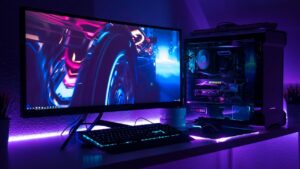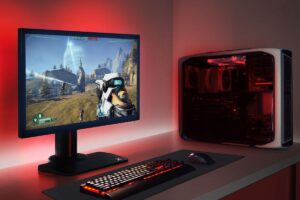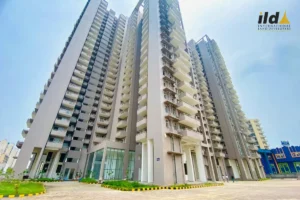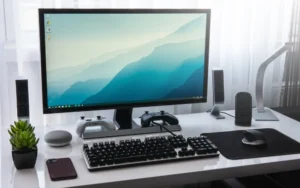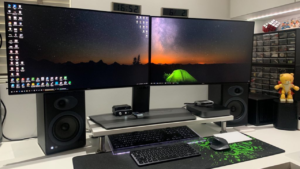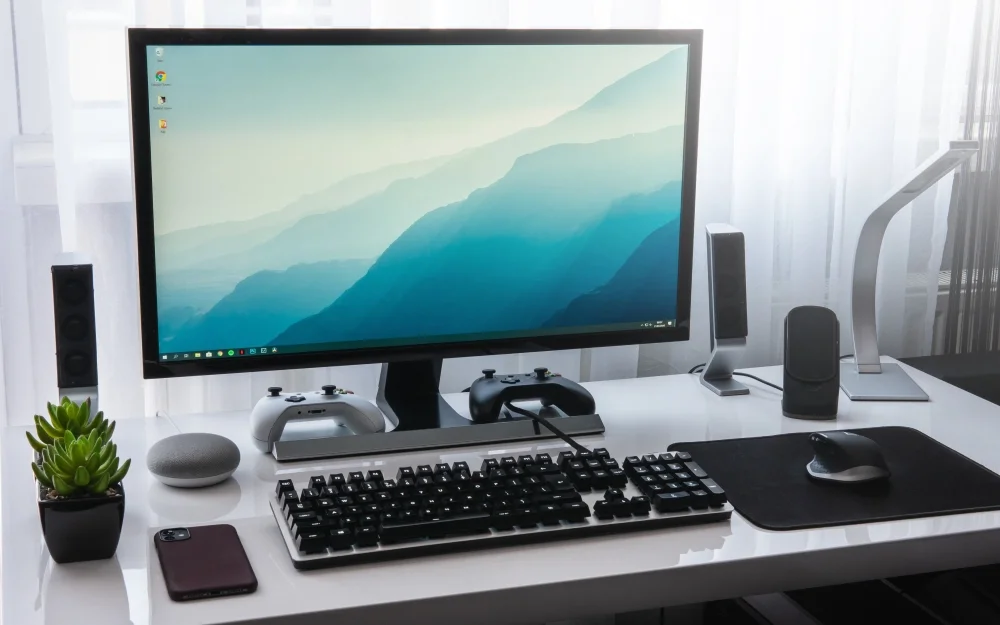
When it comes to selecting a desktop computer, the choices can feel overwhelming. There are so many brands, specifications, and features to consider.
As one of the reports by Grand View Research mentions, The global personal computer market was valued at USD 155.19 billion in 2023 and is projected to expand at a compound annual growth rate (CAGR) of 8.0% from 2024 to 2030.
However, finding the best desktop computer for your needs doesn’t have to be complicated. It’s about understanding what you’ll use the computer for and which features will best support those activities.
Let’s have a look at the important factors to consider when picking the best desktop computer.
1. Consider Your Budget
Before diving into the technical specifications, think about how much you’re willing to spend. Budget plays a crucial role in narrowing down your options. There are plenty of best desktop computers in different price ranges, so having a clear idea of your budget will help you choose wisely.
- If you’re on a tight budget, you may need to look for essential features without going overboard on extras.
- However, if you have a bigger budget, you can afford to get a machine that offers more power and versatility for things like gaming or professional software.
Define Your Needs
The first step in finding the best desktop computer is defining your needs. What are you planning to do with the computer?
- If you’re someone who uses your desktop primarily for browsing the web, checking emails, and light word processing, you don’t need a high-end machine. A basic computer should suffice.
- But if you plan to use your desktop for heavy tasks such as video editing, 3D rendering, or gaming, you will need something much more powerful.
Gaming desktops and professional workstations often come with faster processors, more RAM, and better graphics cards to handle demanding tasks smoothly.
Find the Best Desktop Computer for Your Specific Purpose
Now that you have an idea of your budget and needs, it’s time to start looking for the best desktop computer. For general use, focus on getting a machine with at least 8GB of RAM, a decent processor (Intel Core i5 or Ryzen 5), and sufficient storage (SSD is preferable for speed).
- If you need a computer for gaming, look for one with a powerful graphics card such as an Nvidia GeForce or AMD Radeon.
- A good graphics card is essential for running graphically intensive games smoothly.
- For gaming, also make sure the computer has a high refresh rate display and good cooling mechanisms.
- For those who work with large files or edit videos and photos, a desktop computer with more than 16GB of RAM and a fast processor (like Intel Core i7 or Ryzen 7) is a great choice.
- It will speed up rendering and processing times, making your work much easier.
Evaluate the Processor (CPU)
The CPU is the heart of any desktop computer, so it’s important to choose wisely. When looking for the best desktop computer, consider the processor’s speed, number of cores, and overall performance.
- Intel processors: Intel Core i3, i5, and i7 are the most common in personal desktop computers. Intel Core i9 is used in high-performance computers, particularly for gaming or heavy tasks like video editing.
- AMD processors: AMD Ryzen processors are known for their multithreading capabilities, making them great for tasks like content creation or running multiple programs at once. Ryzen 5 and Ryzen 7 are solid choices for most users.
RAM and Storage Considerations
The next step is evaluating the amount of RAM and storage your new desktop should have.
- RAM: RAM allows your computer to multitask. For everyday use, 8GB of RAM should be sufficient. However, if you do memory-heavy work such as video editing or running virtual machines, aim for 16GB or more.
- Storage: Solid-state drives (SSDs) are faster than traditional hard drives (HDDs) and can speed up boot times and file access. A 512GB SSD should be enough for general use. For those who store a lot of media files, a combination of an SSD (for speed) and an HDD (for storage) might be ideal.
Look for Reliable Connectivity and Ports
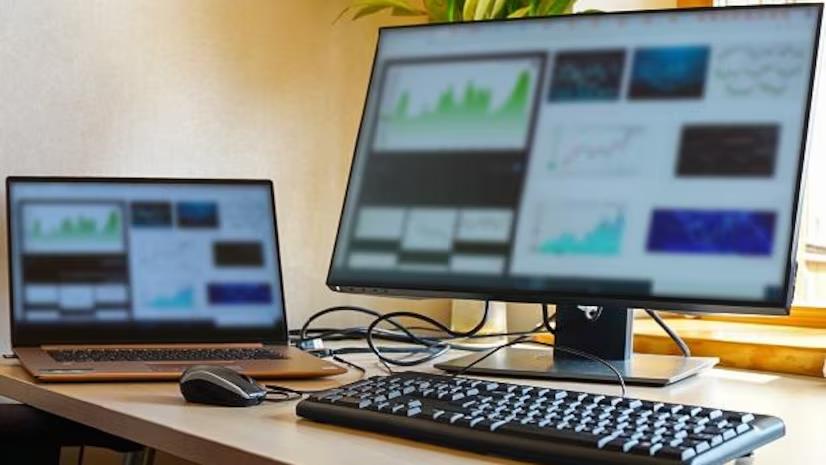
Ensure the desktop computer has enough connectivity options. USB ports are essential for connecting external devices such as keyboards, mice, and printers. Look for a machine that offers at least USB 3.0 ports for faster data transfer.
- Wi-Fi and Bluetooth: Having Wi-Fi 6 and Bluetooth 5.0 will ensure your desktop can connect to the internet and other devices at high speeds.
- Ethernet port: For those who prefer a wired connection, make sure the desktop has an Ethernet port.
These connections ensure that you can use your desktop with ease and compatibility across different devices.
Design and Aesthetics Matter Too
When you’re choosing the best desktop computer, consider its design and size. If you have limited space, a compact desktop or an all-in-one (AIO) PC might be a good fit. AIO PCs integrate the monitor and CPU into a single unit, saving space while providing great functionality.
- If you prefer a desktop with a lot of customization options, a traditional tower may be the best choice.
- These desktops tend to have more room for upgrades, such as adding more RAM or swapping out the graphics card.
Customer Support and Warranty
Finally, don’t forget about customer support and warranty when selecting your new desktop computer. Choose a brand that offers good customer service and provides reliable warranty options. A solid warranty ensures that you can get your desktop repaired or replaced if something goes wrong.
- Some companies offer extended warranties, which might be worth considering, especially if you’re investing in a higher-end machine.
- Always check the warranty details and consider reading customer reviews about the support services of the brand.
Conclusion: Make the Right Choice
Choosing the best desktop computer for your needs may take some time and consideration, but it’s worth the effort. Start by defining your budget and usage requirements. Then, look at key specifications like the CPU, RAM, storage, and connectivity to find a machine that meets those needs. Don’t forget to consider the design and support options to ensure a good experience with your new desktop.
By following these simple steps, you can find a desktop computer that fits perfectly into your daily routine, making work, gaming, or entertainment a breeze. Don’t rush the decision, and take your time to find the perfect fit for your lifestyle.
